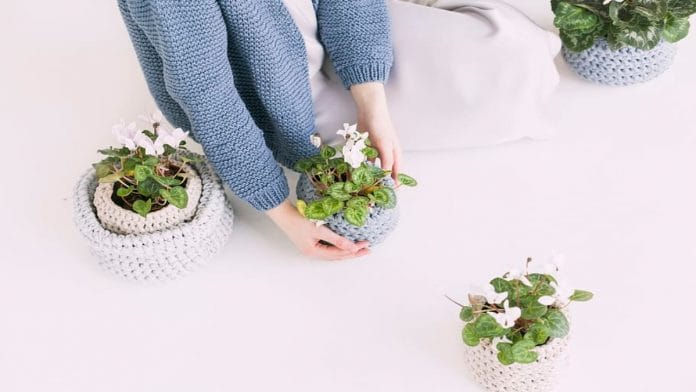Adding plants to front gardens can significantly reduce the perceived stress of residents, scientists believe.
Ornamental plants including shrubs, trees, climbers and bedding plants were introduced to 38 previously bare front gardens in the north of England.
After three months, residents taking part in the small study reported a significant drop in stress levels, which was backed up by healthier daily patterns of the stress hormone cortisol.
Other wellbeing benefits included feeling happier, more relaxed, having greater motivation to improve, and feeling a sense of pride in their living environment.
One 40-year-old man taking part in an area with frequent fly-tipping and theft, told the researchers: “It gives you pride, not just in your house but in the whole area. It makes it look like your area has not just been left to rot.”
The authors believe the study highlights “the importance of residential gardens as a potential resource for public health and the need for gardens to be brought more forcefully into the debates around housing, city densification, and the value of different types of green infrastructure.”
Also read: Herbal teas made with sage, perilla leaves suppress SARS-CoV-2 replication, German study finds
Paved over
In the UK, 87% of households have gardens, equating to 30% of the total urban area. Yet recent studies suggest as much as 38% of this area is now hard-surfaced, with some ‘gardens’ having no plants at all, the authors say.
“Not only are gardens being omitted in some new developments, but existing gardens are also changing in terms of their land cover, with many being paved over to facilitate ‘off-road’ car parking or to ease maintenance,” they add.
The research, published in the academic journal Landscape and Urban Planning, was conducted in Salford, Greater Manchester, because of its abundance of 19th-century terraced houses, with small paved-over front gardens and no vegetation.
“In reality, there is little understanding of how garden design, as well as type and extent of vegetation influences well-being,” the researchers say.
Although the data showed a positive link between the garden intervention and perceived stress, cortisol levels and improvements in mood, the authors warn that sample sizes were small.
“We cannot categorically claim ‘cause and effect’; other factors external to the project could also have been influencing these trends,” they say.
Also read: Gaming could be good for well-being, over regulation restricts human rights — Oxford study
Green benefits
Numerous studies show the therapeutic value of spending time in nature and how urban green spaces allow city dwellers to relax.
There are benefits to emotional well-being, cognitive functioning, behaviour and physiological responses, including heart rate, pulse rate, blood pressure and stress levels.
Exposure to green space has also been linked to immune system enhancements and encouraging physical activity.
One recent experimental study tested whether a brief experience in nature promotes specific positive emotions, such as happiness, from being absorbed in nature.
The authors, psychologists Matthew Ballew and Allen Omoto, reported: “Results indicate that nature fosters awe and other positive emotions when people feel captivated and engrossed in their surroundings.”
This article was originally published in the World Economic Forum.
Also read: Can plant traits be modified without modifying their DNA? Netherlands study says yes






